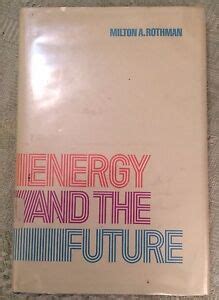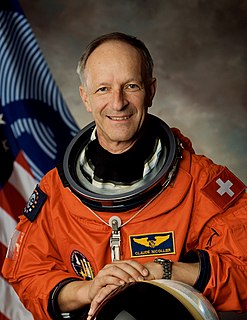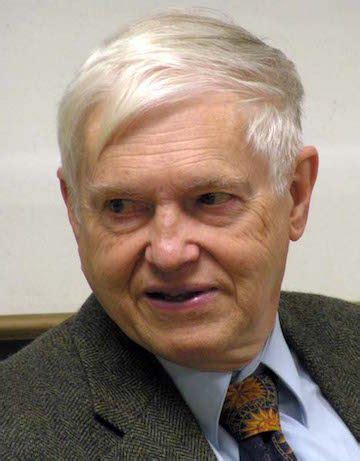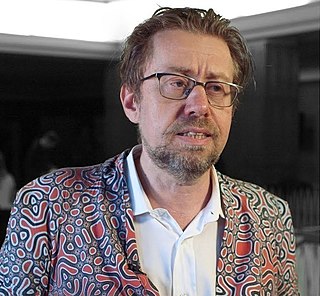A Quote by Floyd E. Bloom
As we begin the 21st century, the Hubble space telescope is providing us with information about as yet uncharted regions of the universe and the promise that we may learn something about the origin of the cosmos. This same spirit of adventure is also being directed to the most complex structure that exists in the universe - the human brain.
Related Quotes
To most humans, a universe consisting of particles banging about and doing what they have to do seems cold, barren, and without meaning. Meaning, however, is not something that floats in space, permeating the universe like a nebulous, mystical cloud. ... Meaning arises out of the working of the human mind, and therefore exists only in the human mind. The meaning of existence is whatever you want to make of it.
We have all kinds of limitations as human beings. I mean we can't see the whole electromagnetic spectrum, we can't see the very small, we can't see the very far. So we compensate for these short comings with technological scaffoldings. The microscope allows us to extend our vision into the microsphere. The telescope allows us to extend our vision into the macrosphere, the Hubble Space Telescope extends our optic nerve into space, and it allows us to mainline space and time through our optic nerve.
If consciousness is the ground of being rather than an epiphenomenon of physical processes, we may find that a basic question asked by modern astronomy and space science- 'Is there life out there?'- should be rephrased. Organic life, as well as intelligence, may already be a property enmeshed in the fabric of the cosmos, brought to fruition through the spiraling dynamics of the solar system and the galaxy, built into the structure of the universe itself.
A successful unification of quantum theory and relativity would necessarily be a theory of the universe as a whole. It would tell us, as Aristotle and Newton did before, what space and time are, what the cosmos is, what things are made of, and what kind of laws those things obey. Such a theory will bring about a radical shift - a revolution - in our understanding of what nature is. It must also have wide repercussions, and will likely bring about, or contribute to, a shift in our understanding of ourselves and our relationship to the rest of the universe.





























